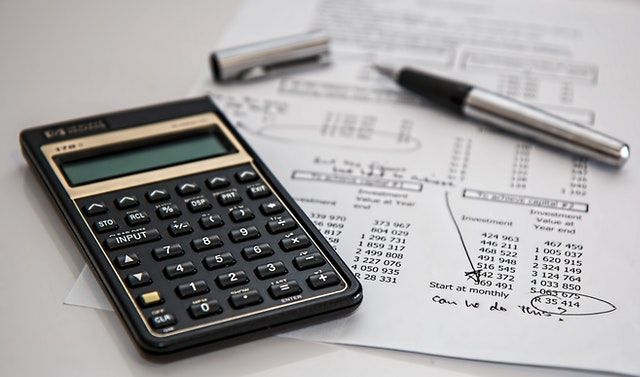Setting Up a Company in Ireland
A company can provide access to lower tax rates and provide protection for personal assets from creditors. But is it worth setting up a company in Ireland?

Having read Rich Dad Poor Dad, in which one of the key pieces of advice is to own your assets and debts through a company or corporation to provide limitations on liability, I decided to look into how difficult it is do to so in Ireland.
Disclaimer
Please seek advice from an accountant or financial planner rather than relying on the information in this article. I am not an expert and the notes here are summaries of my research at the publish date and may have inaccuracies or be out of date when you read them. I take no responsibility for your actions.
Note anyway that practically everything that I describe will require the assistance of an accountant at some stage.
Company Types
There are two main types of company suitable for start-ups: a sole trader and a limited company. The sole trader does not have the protection of limited liability; all his or her assets, including family home, can be at risk in the case of a default in debt. The limited company appears to be a better option, by separating what the individual owns from what the company owns, with the latter assets only being at risk in the case of credit default.
It is important to note that you can also set up a partnership, which is similar to a sole trader. The partner can invest but also receive protection from limited liability. They can only be chased for money that has already been invested in the partnership and all their assets are considered separate. One of the partners, however, must take the same risks as the sole trader.
Which to Choose?
On the surface it may appear to be an easy choice; the limited liability company provides all the protection that you want whereas the sole trader leaves all your assets open to attack from creditors. What’s the catch?
Unfortunately there is a catch. One problem with the limited company is that there is a lot more paperwork involved. While the sole trader’s only responsibility after they have registered is to submit an annual tax return each year (by 31st October), as well as pay preliminary tax for the following financial year (due in month before financial year ends), the limited company has stringent reporting requirements.
Setting up a limited company involves additional documentation, and tax returns are necessary following the same schedule as the sole trader. But they must also file forms after six months and eighteen months, the latter including financial statements. In subsequent years full annual reports including financial statements will be required. It is unlikely that a budding entrepreneur will have the expertise to make these filings on their own and will need the services of an accountant.
Choosing between setting up as a sole trader or a limited company depends primarily on two factors: risk and profit.
If losing a family home is simply too big a worry, then taking the limited company approach may be the only option. However, if profits are likely to be on the low side, for example €50,000 or less, then in may simply not make economical sense.
Slow Starter
It is possible to begin the life of your new company as a sole trader and then to change or upgrade to a limited company as your income grows or before you decide to look for financing that may increase risk.
While it is possible to make your tax returns by yourself, it might be advisable to employ an accountant. They will be able to ensure that all expenses are within the rules and also to ensure that you have accessed all the tax relief and credits that you are entitled to.
Once your company grows to certain size in terms of revenue, any assets that you own as a sole trader (money you invested, equipment, trademarks etc.) will need to transferred to the new limited company. An accountant will likely be needed for this process also. With luck, your budding enterprise will flower into an amazing start-up.
The key reason for changing is to do with the different tax rates that apply. As a sole trader, any income you make after expenses will be considered taxable at the applicable rate of interest. The higher rate in Ireland is 40% at the moment and starts to kick in as you approach an income of €50,000 (to be exact it is €44,300 for a married person or €39,300 for a single person in 2020).
Limited companies pay corporation tax on the taxable profits. There are two rates: 12.5% and 25% with the lower rate requiring stringent proof that it applies to your company. Either way both rates are lower than the higher income tax rate, so once income begins to push your business in the higher band, it may be time to think about upgrading from sole trader to limited company.
Day Job
For most people, starting their own company is a big deal; scary and risky. One good strategy is to start slowly, building things up in spare time while holding down a regular job. For example, working on weekends, early in the morning or after work in the evening. This way you can get something working, let’s call it a proof of concept, and even begin generating income, while building up a list of clients, customers or leads.
As soon as you take your first payment for goods or services, note that you should be treating this hobby as a business. It may be time to hire an accountant and get some advice. The quickest way to get started when you begin selling is to set a company up as a sole trader.
If you do start your new enterprise while fully employed or working part time, you should already be paying some tax. It is important to note that if you start as a sole trader, the income you earn counts on top of your existing PAYE tax. The combined income may push you into a higher tax bracket.
Don’t let this sneak up and hit you. The best advice is to put half of all profit into a savings account every month (or as it is earned) so that you are not hit by a big tax bill and no cash on hand. As a sole trader you can file your taxes from January 1st until October 31st. By preparing your accounts early, you will know whether you have saved enough money and if not, at least you will have ten or so months to recoup the difference.
As always, an accountant will be a good ally during the reporting period. Whether you choose to retain a single firm throughout the year or just for annual reporting may depend on cost, but you will need one so factor that into your company’s budget before you start.

Other Things
There are a few other things to be aware of as you begin to trade. For example, you must register for VAT once sales per annum go above a certain threshold: €37,500 for services and €75,000 for goods. Once registered you must explicitly itemise VAT on any invoices. If your company is registered in Ireland you probably need to adhere to Irish VAT regulations, but if selling outside the EU, you may be able to charge VAT at 0%. Check with an accountant.
Preparing annual reports has become a lot easier with web based products such as quickbooks.com and xero.com which can help keep track of financial transactions and present the data back to you. Make sure that you keep every receipt, backing it up with photo immediately is a good idea. Make especially certain to keep a close watch on cash expenses. If possible use a credit card. If you are a sole trader and are using a personal rather than company card, it is vital to keep receipts to ensure you can claim legitimate purchases as expenses.
Expense management is a complicated process and there are differences between allowable expenses for a limited company and a sole trader, for example, in claiming travel expenses. If you are using a part of you home to work from you can expense some of the electricity and heat, based on the area of the office space. However, it is best to seek an accountant to help correctly allocate your expenses to the right categories.
As a sole trader, if you make a loss in a given trading year, then it will be possible to offset that loss against gains made in subsequent years. Also, if you are a PAYE earner then you may be able to claim back tax for that year.
One final thing to consider if you are setting up as a sole trader is that if you want to register a specific company name, that is a name that does not include your given name, then an additional filing is required to the Companies Registration Office.
Conclusion
I had idly thought of setting up a company before I have any way of making money. Once that big idea comes my way then I would be ready with everything in place to begin trading. That’s probably a bad plan.
Even as a simple sole trader, the added inconvenience of a yearly tax return is not worth the hassle. I could simply file the tax return myself each year, but I would run the risk of being noticed or even audited. Even though I have never experienced a personal audit, it is not something that I would like to flirt with.
The first step for my budding company is to figure out what it is. The process to set up as a sole trader is simple and I will be able to do it in a matter of weeks. That should give enough time to get all my documentation in place. A key step will be to track and account for all upfront expenses as if I have a company so that they can be claimed correctly. And I will definitely consult or retain an accountant.
